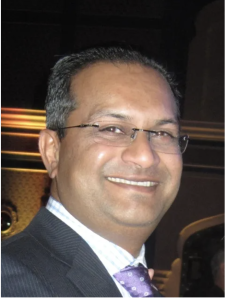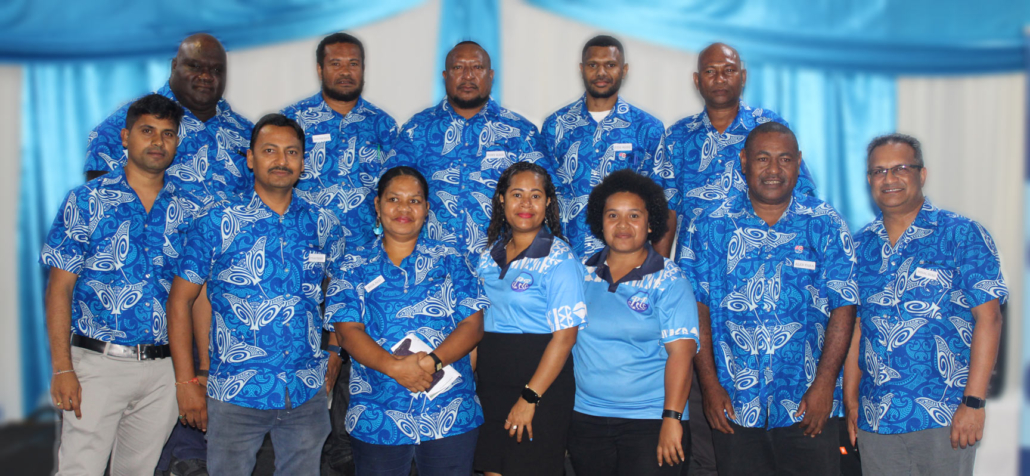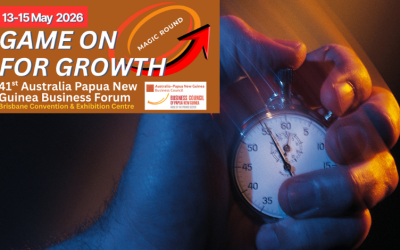
Pacific Foam Chairman Nihal Shah, who is also Vice Chairman of the APNGBC.
The Pacific Foam Group has been operating in Papua New Guinea for the past 45 years and has grown with the country’s economic growth. As part of a series of featuring Australia Papua New Guinea Business Council (APNGBC) member profiles, APNGBC newsletter editor Dev Nadkarni exclusively interviewed Nihal Shah, Chairman of Pacific Foam Group, who is also the Vice President of APNGBC. The Group also owns ColorPak Limited, a leading supplier in PNG of a wide range of packaging products and solutions. Nihal speaks about Pacific Foam’s story in PNG, its growth, the challenges it has had to negotiate and the company’s outlook for the future.
Please tell us about the Pacific Foam Group. When did the journey begin in PNG?
The Pacific Foam Group is part of a multinational family-owned group of companies involved in various manufacturing and trading sectors across Africa, North America, the UK, UAE, India, Hong Kong, Australia and Papua New Guinea. The third and fourth generations of the family now oversee the various operations. It first started its operations in PNG over 45 years ago on 24 April 1978 with the investment in its first PU foam manufacturing plant in Lae.
How has the company contributed to economic growth in PNG and the Pacific, and how has the company, in turn, grown with this economic growth?
Early in its more than 45-year history, the Group expanded its manufacturing footprint to Port Moresby with the second manufacturing plant and thereafter progressively diversified its product range from the foam mattresses that it is still well recognised for, to wooden and upholstered furniture, spring mattresses, soft furnishings and flooring products. It also distributes a variety of complementary office, metal, leather, plastic and outdoor furniture products, other household products and a comprehensive range of flexible packaging products (through Colorpak, its subsidiary packaging business). The Group’s PNG operations have positively contributed to offering meaningful employment and skills training to many thousands of PNG citizens over two generations and continues to do so.
What have been some of the challenges faced in working in the Pacific Islands region compared to Australia and NZ
The challenges are many…! But the key ones to highlight particularly from a manufacturer’s perspective are the ongoing lack of adequate enabling infrastructure (power, roads, ports, telecommunications) and also the high cost of essential services as compared to comparable global equivalents, in for instance power, shipping, telecoms, travel, rents, security.
Is Pacific Foam Group involved in Corporate Social Responsibility (CSR) initiatives in PNG?
We support a number of CSR activities though generally prefer to stay under the radar – cancer relief, charitable drives for equipment in schools and hospitals and various disaster relief initiatives
How did your company negotiate the difficult period of the pandemic and the supply chain challenges that ensued
That was a tough time, but we supported our staff with the provision of appropriate PPE and other safe working initiatives as well as encouraging vaccination – we are proud that our workforce achieved 100% vaccination (2 doses). We had great support from our long-term key suppliers and our staff stepped up to work with agility and nimbleness. While there were clear challenges in securing raw material supplies and other imported components, our customer base also supported us well by taking up import-replacement opportunities that we were able to ramp up from our local manufacturing facilities
What is your outlook for business in PNG and the Pacific in the near to medium term? What are the most concerning challenges?
I am guardedly optimistic for the PNG economy in the medium term – PNG has always offered tremendous potential for growth in our sector but pretty much in all sectors. However, this has often been significantly muted by the operational challenges already mentioned above. If just some of the basics such as consistent and reliable power supply, freely available foreign exchange supplies and reliable and competitively priced telecommunications could be delivered by the PNG government, I have no doubt that one would see a tremendous lift in new investments and consequential growth in the local economy leading to meaningful growth in employment opportunities for the people and higher taxation revenues for the government which in turn would lift the delivery of medical, education and other essential facilities for PNG’s future generations
Your thoughts on the forthcoming Fiji Business Forum (August) and the Infrastructure Conference (Sept)…
These are great events for bringing like-minded people together and which hopefully lead to real opportunities being brought to fruition in the Pacific.



